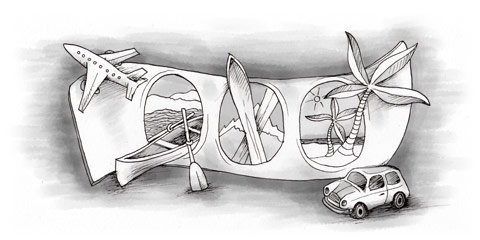Spain is a great country for amateur rock-climbers and mountaineers, and provides a wealth of challenges and some of the best areas in Europe outside the Alps. Around 10,000 caves have been discovered in Spain, many with prehistoric rock paintings and stalactites. Some caves are long and dangerous and should be explored only with an experienced guide.
If you’re an inexperienced climber, it’s advisable to join a club and ‘learn the ropes’ before heading for the mountains. There are over 750 climbing clubs in Spain, many maintaining their own mountain huts and refuges.
Information can be obtained from the Spanish Mountain Sports Federation (Federación Española de Deportes de Montaña y Escalada/FEDME), C/Floridablanca, 84, 08015 Barcelona (934-264 267, http://www.fedme.es ). The FEDME also produce 1:50,000 scale maps for mountain areas. A number of climbing books are published for the most popular regions of Spain. Comprehensive information about all aspects of mountaineering is included on the website http://www.spainmountains.com .
It’s important to hire a qualified and experienced guide when climbing in an unfamiliar area, who are available through climbing clubs and schools throughout Spain (if you find a guide other than through a recognised club or school, ensure that they’re qualified). It’s important to note that Spain doesn’t have the sophisticated mountain rescue services provided in Alpine countries and if you get into trouble you may need to rely on your own resources and those of your companions.
Many climbers lose their lives each year, usually through their inexperience and recklessness. Needless to say, it’s extremely foolish, not to mention highly dangerous, to venture into the mountains without proper preparation, excellent physical condition, adequate training, the appropriate equipment AND an experienced guide.
This article is an extract from Living and Working in Spain.
Click here to get a copy now.




